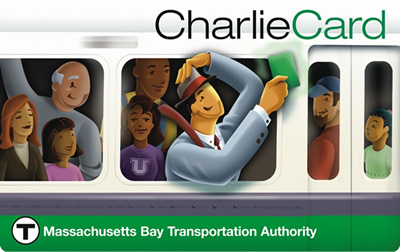New Study Urges MBTA to Expand Corporate Pass Program
Watch a video interview of the author on BNN News, and read coverage in the Boston Business Journal and The Boston Globe.
More riders would boost T revenue, cut employee commuting costs, provide savings for employers, reduce traffic congestion and help the environment
BOSTON – Increased use of employer-sponsored commuter benefit programs could boost MBTA revenue significantly, reduce employee commuting costs, provide employer savings, reduce traffic congestion and yield environmental benefits, according to a new study published by Pioneer Institute.
“In 2015, the Governor’s Special Panel to review the MBTA found that the T needed to urgently pursue revenue opportunities and identified increasing ridership as the first item on the agenda,” said Jim Stergios, Pioneer Institute Executive Director. “The Corporate Pass Program has the potential to significantly boost both ridership and revenue.”
Under commuter benefit programs, employers can provide their employees with a tax-free transit subsidy and/or exclude from taxable wages a total of up to $260 monthly. These benefits can cut employee commuting costs by as much as 40 percent. At the same time, employers save the 7.65 percent payroll tax on money that is no longer considered wages.
The MBTA currently generates $162 million annually – 29 percent of overall revenue – from its Corporate Pass Program (CPP). In “Increasing MBTA Ridership and Revenue with Company Commuter Benefit Programs,” author Robert L. Dawson finds there is significant room for that number to grow.
Only about 45 percent of the more than 350,000 employees who work within half a mile of an MBTA subway stop currently have access to the CPP. Among employers who do offer it, only about a third of employees participate. If both the number of companies within close proximity to a subway stop that offer the program and the number of employees at those companies who take advantage of it increase by 20 percent, the MBTA would generate up to $70 million annually in additional revenue.
Today, participation is better among small employers. About 55 percent of companies that are within half a mile of a subway stop and employ less than 25 people offer the CPP. The number drops to 32 percent for companies with 1,000 or more employees.
While the MBTA’s CPP has been a success, the authority can learn from other transit agencies that do a better job marketing their commuter benefits programs. In Seattle, for example, the transit system reaps 35-40 percent of its revenue from its commuter benefits program, compared to 29 percent at the T.
Dawson urges the MBTA to follow the lead of systems like Seattle, Philadelphia and San Francisco by working directly with employers to promote the commuter benefits plan with an advanced website and marketing materials. Particular effort could be focused on large employers, who currently are less likely to participate in the CPP. The T could also help companies develop employee surveys to gather data about current commuting behavior and interests, and assist with program design.
The MBTA might replicate a Philadelphia program that offers employers a 5 percent discount on its commuter benefits program if the company matches it, resulting in a 10 percent employee discount.
Closer to home, MIT provides an example of a successful commuter benefits program. By embedding a CharlieCard micro chip in employee badges, the university offers free transit as a standard employee benefit. Studies show MIT has saved significant money by not having to build new parking garages and raising the price of existing parking spaces to about 60 percent of market levels.
“The Governor, Secretary of Transportation and MBTA management should take the lead on convincing business executives to become part of the effort to increase transit use, reduce highway congestion and contribute to a cleaner environment,” Dawson said.
He also urges the Massachusetts Department of Revenue to change an existing policy that allows taxpayers to deduct almost twice as much for parking costs as for transit expenses.
Robert L. Dawson, a Certified Financial Planner, provides part-time research and writing on select topics for Pioneer Institute. He currently serves on the MassBay Community College Foundation Board of Directors. He spent 12 years in the technology industry, and 25 years in investment management and advisory services. Bob holds a BA from Colgate University, an MBA from Boston University, and is completing a graduate degree in public administration at Framingham State.
About Pioneer
Pioneer Institute is an independent, non-partisan, privately funded research organization that seeks to improve the quality of life in Massachusetts through civic discourse and intellectually rigorous, data-driven public policy solutions based on free market principles, individual liberty and responsibility, and the ideal of effective, limited and accountable government.
Get Our Fix the T Updates!
Related research:



